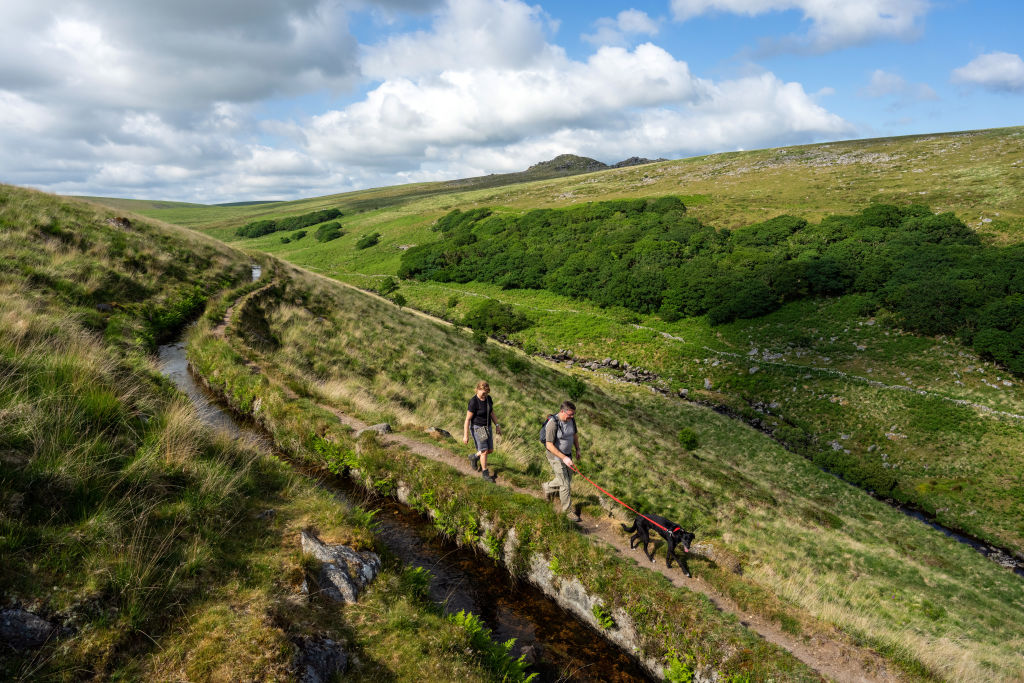This evening, activists will gather under Haytor, Dartmoor’s iconic landmark rocks, to celebrate what feels like a rare victory for the right of citizens to roam. Today, the court of appeal has overturned an earlier decision that ended an assumed and ancient right: that which allowed you to lay your hat and your home without permission more or less anywhere on the park’s 368 square miles. I declare an interest as someone who both lives on the moor and who often disappears with my tent into southern England’s last wilderness for a natural mental health spa — and I am one of many who have been waiting for this appeal outcome for far too long.
In January 2023, a millionaire landowner and hedge fund manager Alexander Darwall challenged the widely held interpretation of the 1985 Dartmoor Commons Act that ‘outdoor recreation’ included the right to camp overnight. In what must count as one of the most perverse judgements in recent times, he won. This outcome essentially redefined recreation as solely ‘ambulatory’, much to the frustration of the coalition of right-to-roam activists who rose up to oppose his land grab.
Mr Darwall has by any reasonable measure plenty of space to stand and stare unmolested. He is the owner of almost 16,000 acres of Sutherland in northern Scotland — as well as 4,000 monetised acres of southern Dartmoor. But no matter: he stood firm in his argument that wild camping on his land was damaging the environment.
To have Dartmoor’s wild attractions tamed by people rich enough to interfere with this right for their own selfish reasons is intolerable.
That didn’t wash. ‘This was always one landowner’s naked attempt,’ said a spokesperson for The Stars Are For Everyone, ‘to find any pretext to roll back the public’s right to connect with nature on national parkland.’ Her dismay resonated with many, including me.
To be strictly accurate, the overturned ruling specified that wild camping could be continued — but not as a right. Instead, it would be subject to the landowner’s consent. But this was a crucial change which had huge significance for those who simply wanted to vanish off the path when the notion takes them and pitch up for the night on common land. I’ve met dozens of people who wild camp in this way. They are a charmingly eclectic bunch, overwhelmingly responsible, who disappear without trace the next morning.
The park has also been the proving ground for generations of Devon schoolkids — including mine — who take part in the annual Ten Tors endurance event. The right to roam kindles a lifelong duty to look after the environment. Those children learn about the bleak majesty of this place, and how to respect it. To have its wild attractions tamed by people rich enough to interfere with this right for their own selfish reasons is intolerable.
Moreover, the right to camp overnight is not absolute. There are sensible rules in place, including distance from roads, that must be observed. You deserve everything that’s coming to you if you deliberately make your bed on the north moor’s firing range when it’s in action. And while the behaviour of a minority of people during lockdown who despoiled some areas of the moor within or outside the ever-changing Covid guidance was reprehensible, it was no excuse for an assault on the rights of the rest of us.
Open access to the countryside was only established after the Kinder Scout Mass Trespass in 1932, and it cannot be taken for granted in any of its forms. It is also a precious commodity available to everyone without regulation in an increasingly noisome world. Putting your house on your back in all weathers and setting forth into our ‘big empty’ is a marvellous way to reconnect with nature and repair the ravelled sleeve of care. Today’s restoration of an ancient principle on Dartmoor should not only be welcomed, it should be extended to all our national parks. It is long overdue.







Comments